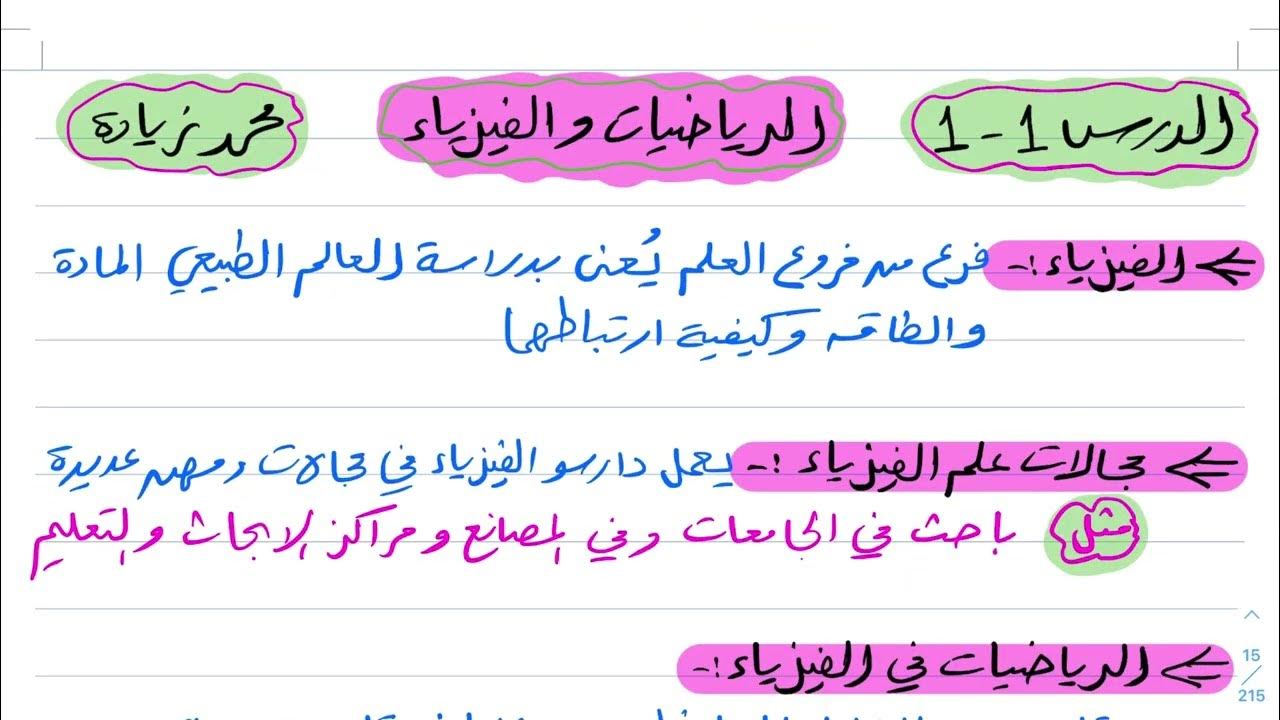Why You Should Never Say "It's Just A Theory"
Summary
TLDRThis script explains the scientific method, emphasizing its importance in understanding the natural world. It covers the core concepts of observation, hypothesis, theory, and law, while addressing common misconceptions. The speaker uses examples like gravity to illustrate how theories are formulated through experiments and data collection, debunking the idea that a theory is merely a guess. It also highlights the difference between a law, which summarizes observations, and a theory, which explains why phenomena occur. Overall, the scientific method is portrayed as the most reliable way to gain knowledge about the universe.
Takeaways
- 🔬 The scientific method is a crucial framework for gaining knowledge about the universe, originating from Aristotle and maturing around the time of Galileo and Newton.
- 🌍 Science encompasses the study of everything, aiming to explain the natural world through empirical evidence.
- 🧪 A hypothesis is a tentative explanation for observations, and it can be tested through experiments to gather empirical data.
- 📉 An experiment must focus on one independent variable (which we control) and one dependent variable (which changes in response).
- 🏗️ If a hypothesis consistently explains a wide range of phenomena, it can evolve into a theory, like Newton's theory of gravity.
- 🌌 Theories, such as general relativity or atomic theory, are well-substantiated explanations that predict and correlate vast amounts of data.
- 📜 A law summarizes observations (e.g., the law of gravity), but it doesn't explain why something happens—that's the role of a theory.
- 💡 A common misconception is that a theory is a guess or becomes a law when proven, but theories and laws serve different purposes.
- 🎯 Theories must make predictions that can be tested and falsified. If a theory’s predictions fail, the theory is discarded or revised.
- 🧠 The scientific method is impartial and rigorous, avoiding the biases and limitations of human intuition and common sense.
Q & A
What is the scientific method and why is it important?
-The scientific method is a structured process used to gain knowledge about the universe. It involves observation, forming hypotheses, conducting experiments, gathering data, and forming theories. It’s important because it is the only way to truly know anything about the world beyond subjective personal experience.
How does the script differentiate between a hypothesis and a theory?
-A hypothesis is a tentative explanation or guess about an observation, while a theory is a comprehensive explanation of phenomena, backed by a large body of data and capable of making predictions. A theory has much more certainty than a hypothesis.
What misconception about theories and laws does the script address?
-The misconception is that a theory is less certain than a law, and that if a theory is proven true, it becomes a law. In reality, laws are summaries of observations, while theories explain why those observations happen.
What example does the script use to explain the difference between a law and a theory?
-The example used is gravity. The law of gravity states that objects fall to the Earth when dropped, but it doesn’t explain why. Einstein's theory of general relativity explains why objects fall by stating that space-time is warped around massive objects.
Why are predictions important in scientific theories?
-Predictions are crucial because they allow theories to be tested. If a theory makes predictions that turn out to be false, the theory must be discarded. This is what makes science powerful—it constantly refines its understanding based on new data.
What is the role of experimentation in the scientific method?
-Experimentation gathers empirical data to support or refute a hypothesis. It involves controlling variables to isolate the factor being tested, ensuring that the data is specific to the inquiry at hand.
What example of an experiment does the script discuss?
-The script discusses an experiment involving dropping objects of different masses, similar to Galileo’s rumored experiment from the Leaning Tower of Pisa. The experiment showed that objects fall at the same rate regardless of their mass, refuting the hypothesis that heavier objects fall faster.
How does the script explain the development of Newton's gravitational theory?
-Newton’s gravitational theory combined Galileo’s data on objects falling on Earth and Kepler’s data on planetary orbits. Newton realized that these phenomena could be explained by a single concept, gravity, and formulated an equation that explained both terrestrial and celestial motion.
What is a common misunderstanding about the term 'theory' in everyday language?
-In everyday language, 'theory' is often used to mean a guess. However, in science, a theory is a well-supported explanation of phenomena, backed by extensive evidence, and capable of making accurate predictions.
Why is the scientific method considered impartial and superior to intuition?
-The scientific method is rigorous and impartial, relying on empirical evidence and controlled experiments, unlike intuition, which is biased by personal desires and limited mental capacity. It allows us to gain objective knowledge about the world.
Outlines

Esta sección está disponible solo para usuarios con suscripción. Por favor, mejora tu plan para acceder a esta parte.
Mejorar ahoraMindmap

Esta sección está disponible solo para usuarios con suscripción. Por favor, mejora tu plan para acceder a esta parte.
Mejorar ahoraKeywords

Esta sección está disponible solo para usuarios con suscripción. Por favor, mejora tu plan para acceder a esta parte.
Mejorar ahoraHighlights

Esta sección está disponible solo para usuarios con suscripción. Por favor, mejora tu plan para acceder a esta parte.
Mejorar ahoraTranscripts

Esta sección está disponible solo para usuarios con suscripción. Por favor, mejora tu plan para acceder a esta parte.
Mejorar ahoraVer Más Videos Relacionados

hobbes scientific method/western political thought/political science

شرح درس الرياضيات والفيزياء أول ثانوي 1444

The Nature of Science

Conceptos básicos de investigación

How Alchemy Led to Modern-Day Chemistry & Medicine

HAKIKAT FISIKA KELAS 10 | Fisika Sebagai Produk, Fisika Sebagai Proses dan Fisika Sebagai Sikap
5.0 / 5 (0 votes)
